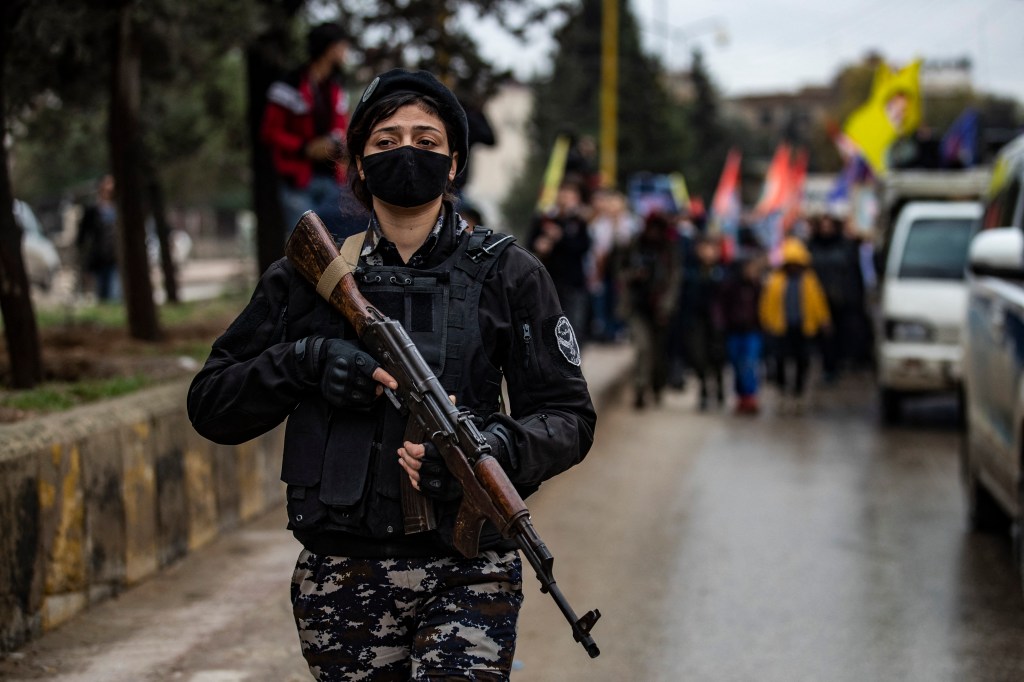New York, June 21, 2021 — Authorities in north and east Syria should reverse their decision to revoke Kurdistan 24’s broadcasting license and should allow it to work freely and safely, the Committee to Protect Journalists said today.
Yesterday, the Media Department of the Autonomous Administration of North and East Syria, the Kurdish-led de facto regional government, revoked the outlet’s license and ordered closed its offices in the cities of Qamishli and Kobane, according to statements by the autonomous administration and Kurdistan 24, as well as reports by the Metro Center for Journalists’ Rights and Advocacy and the Syrian Kurdish Journalists’ Network, two press rights groups.
Authorities allege that Kurdistan 24, which is headquartered in the northern Iraqi city of Erbil and is supportive of Iraqi Kurdistan’s ruling Kurdistan Democratic Party, spread hate and incited violence in its broadcasts, but did not cite any specific coverage, according to those sources.
Also yesterday, Asayish security forces in the cities of Qamishli and Kobane, both under the control of the autonomous administration, ordered Kurdistan 24 to close its offices and cease working from each city, according to the Metro Center statement and Kurdistan 24’s Washington bureau chief, Rahim Rashidi, who spoke to CPJ via messaging app.
Rashidi said that the broadcaster plans to appeal both the license revocation and the office closures.
“The decision by local authorities in northeastern Syria to revoke the license of Kurdistan 24 and shutter its offices amounts to censorship and is a harsh restriction on those reporting the news from the region,” said CPJ’s Middle East and North Africa representative, Ignacio Miguel Delgado. “If the Autonomous Administration of North and East Syria wants to be taken as a legitimate authority, officials should immediately reverse this decision and learn to tolerate criticism and diverse viewpoints in the media.”
The administration’s statement accuses Kurdistan 24 of violating Articles 2 and 11 of the regional government’s media law, which pertain to hate speech and incitement. Neither the statement nor the law itself specify how long an outlet’s license can be suspended for those violations.
CPJ emailed the Autonomous Administration of North and East Syria for comment, but did not receive any reply.
Rashidi told CPJ that authorities “haven’t provided us with any details or any reasons for the closure of our office.”
He said that Kurdistan 24 had covered events in the region “independently and without taking any sides,” and added, “some government officials have even congratulated us on our coverage, so we are surprised that they shut us down. We don’t understand why. This is a violation of press freedom.”
Kurdistan 24 has continued broadcasting from Iraqi Kurdistan, but has ceased airing programming from northeastern Syria, Rashidi said.
Previously, in 2015, authorities in northeastern Syria revoked the license of the Iraqi Kurdish broadcaster Rudaw for allegedly inciting violence and sparking internal discord, as CPJ documented at the time.
